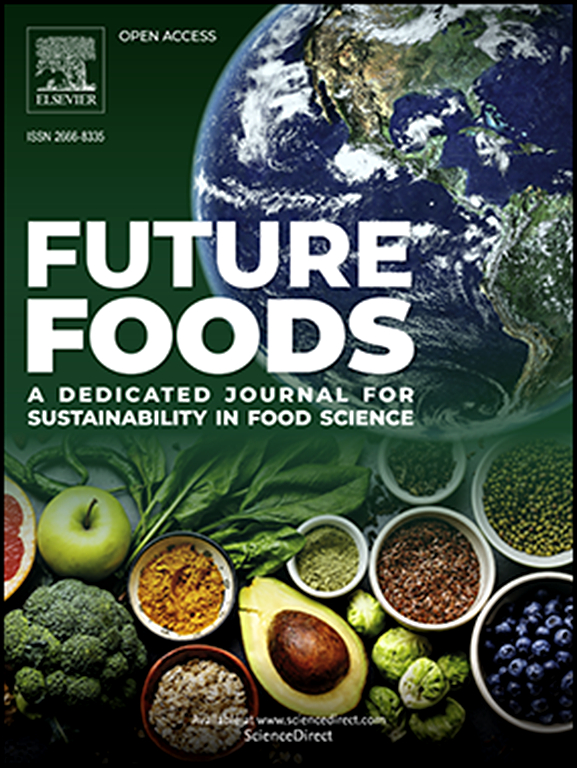A cute little grasshopper on the front? A qualitative study of consumers’ perceptions and expectations of insect-based food labelling in Germany
IF 8.2
Q1 FOOD SCIENCE & TECHNOLOGY
引用次数: 0
Abstract
To increase acceptance of insect-based foods, producers often apply a “hidden-is-best” principle, using less visible insect contents in processed products. Regulations ensure such contents are included in ingredient lists. However, widespread disinformation about “hidden insects in food” indicates a disparity between consumer expectations and labelling practices, showing the need for deeper insights into consumers’ perspectives. This study presents insights from six focus-group discussions in four German cities (N = 50), exploring consumer perceptions and expectations of the presence and presentation of front-of-package insect-labelling. Our findings confirm that many consumers fear “deception” and expect greater transparency through easily recognizable indications of insect-based ingredients on front-of-package labelling using familiar insect names and understandable language. Although the term “protein” on insect-labelling was widely appreciated, we could not find a “one-size-fits-all-solution” for label formatting. The present study offers practical recommendations for marketers, including the development of standardized front-of-package insect-labelling, designed in closer alignment with consumer preferences.

前面有只可爱的小蚱蜢吗?德国消费者对昆虫食品标签的认知和期望的定性研究
为了提高人们对昆虫食品的接受度,生产者通常采用“隐藏是最好的”原则,在加工产品中使用不太明显的昆虫成分。法规确保这些成分包含在成分表中。然而,关于“食品中隐藏昆虫”的虚假信息的广泛传播表明,消费者的期望与标签做法之间存在差距,这表明需要更深入地了解消费者的观点。本研究提出了来自德国四个城市(N = 50)的六个焦点小组讨论的见解,探讨了消费者对包装正面昆虫标签的存在和呈现的看法和期望。我们的研究结果证实,许多消费者担心“欺骗”,并希望通过在包装正面标签上使用熟悉的昆虫名称和可理解的语言,轻松识别昆虫成分的指示来提高透明度。尽管昆虫标签上的“蛋白质”一词得到了广泛的认可,但我们无法找到标签格式的“一刀切”解决方案。目前的研究为营销人员提供了切实可行的建议,包括制定标准化的包装正面昆虫标签,设计更符合消费者的偏好。
本文章由计算机程序翻译,如有差异,请以英文原文为准。
求助全文
约1分钟内获得全文
求助全文
来源期刊

Future Foods
Agricultural and Biological Sciences-Food Science
CiteScore
8.60
自引率
0.00%
发文量
97
审稿时长
15 weeks
期刊介绍:
Future Foods is a specialized journal that is dedicated to tackling the challenges posed by climate change and the need for sustainability in the realm of food production. The journal recognizes the imperative to transform current food manufacturing and consumption practices to meet the dietary needs of a burgeoning global population while simultaneously curbing environmental degradation.
The mission of Future Foods is to disseminate research that aligns with the goal of fostering the development of innovative technologies and alternative food sources to establish more sustainable food systems. The journal is committed to publishing high-quality, peer-reviewed articles that contribute to the advancement of sustainable food practices.
Abstracting and indexing:
Scopus
Directory of Open Access Journals (DOAJ)
Emerging Sources Citation Index (ESCI)
SCImago Journal Rank (SJR)
SNIP
 求助内容:
求助内容: 应助结果提醒方式:
应助结果提醒方式:


